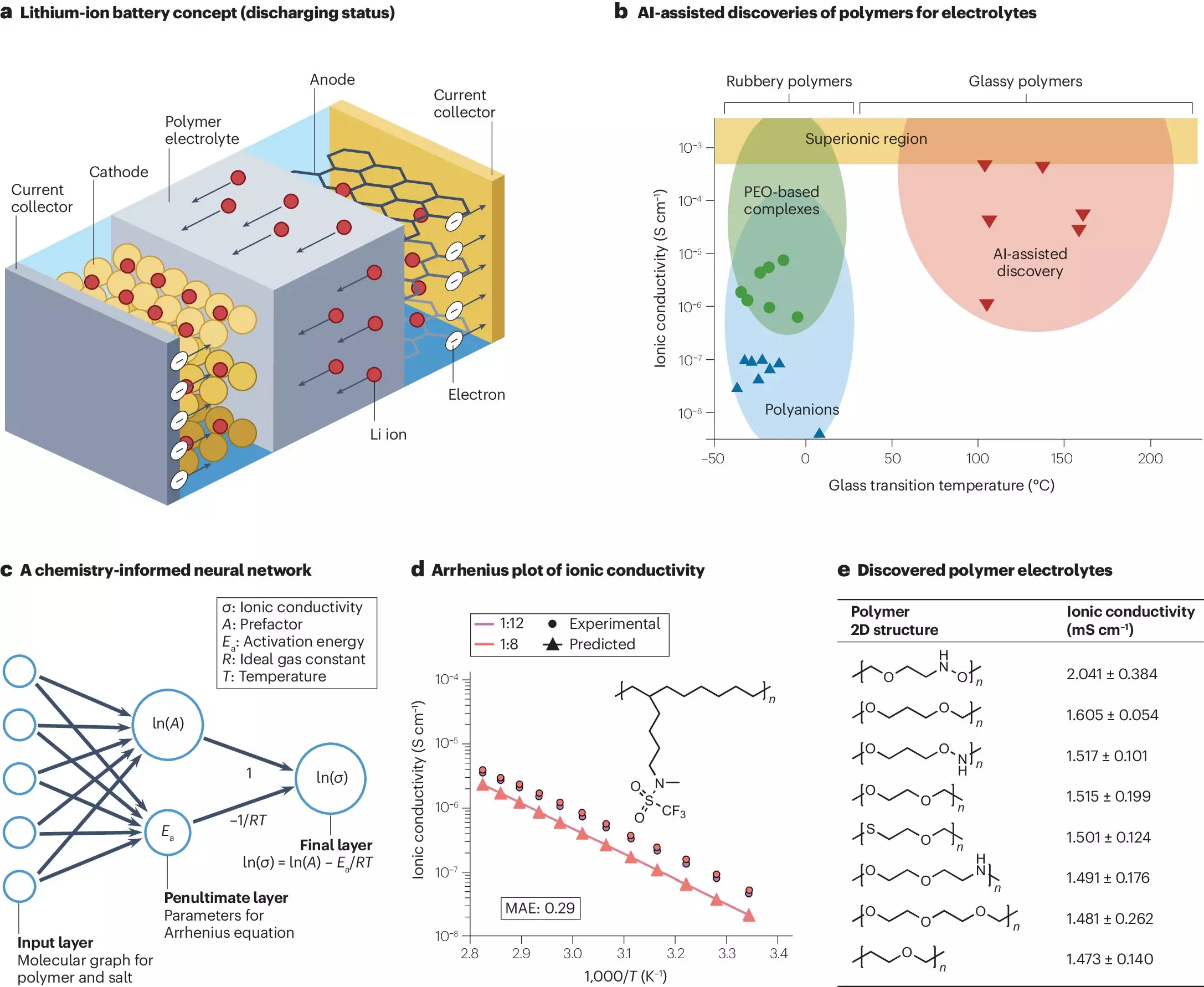Polymers are integral to modern life, encompassing a wide variety of materials such as Nylon, Teflon, and Kevlar. These synthetic compounds play a crucial role in industries ranging from consumer goods to advanced manufacturing, providing vital functionalities that enhance our daily experiences. As technology evolves, the challenge remains to discover new polymers that can meet the ever-growing demands of various applications. With recent innovations in artificial intelligence (AI), researchers are venturing into a transformative phase of polymer discovery, particularly at institutions like Georgia Tech.
At the forefront of this exciting research is Rampi Ramprasad and his team, who are harnessing AI to drive efficiency in the development of new polymers. Their pioneering approach utilizes machine learning algorithms to expedite the discovery process by accurately predicting the properties and formulations of potential materials before they are physically synthesized. This shift represents a paradigm change in materials science, moving from traditional trial-and-error methods to data-driven analyses that can accelerate R&D.
Recent publications in prominent journals have illuminated the progress made in AI-driven polymer research. In “Nature Reviews Materials”, Ramprasad’s team documented breakthroughs in polymer applications for energy storage, filtration technologies, and recyclables, reiterating the fundamental relationship between AI and polymer informatics. Through meticulous algorithms, they can evaluate high-volume data sets to forecast optimal material performance and characteristics, setting the groundwork for real-world applications.
The use of AI in polymer design extends to significant benefits for various industries. A particularly noteworthy application emerged through collaborative work with colleagues at the University of Connecticut. They successfully developed novel polymers for capacitors, pivotal for electric vehicles and renewable energy storage. The challenge has traditionally been developing materials that strike the right balance between high energy density and thermal stability; however, design advancements leveraging AI enabled researchers to produce materials that excel in both domains.
This innovative approach is not just about creating theoretical constructs. The materials designed by Ramprasad’s team were synthesized and tested, demonstrating that AI can effectively guide real-world experimentation. The interplay between advanced computational methods and practical laboratory applications illustrates a robust framework for driving innovation in the polymer landscape.
Despite the substantial advancements achieved, there are hurdles to overcome in the implementation of AI within polymer science. One significant challenge is the reliance on extensive datasets. The accuracy of AI predictions is contingent upon having access to rich, diverse, and high-quality initial data. If the data is limited or of poor quality, the predictions derived from it can be unreliable, potentially leading to wasted resources in lab settings.
Moreover, developing algorithms that can propose chemically viable and synthesizable polymer structures is an intricate task. Following the prediction stage, researchers face the daunting task of validating these hypotheses. The synthesis challenges can prohibit the scaling of these innovations, an essential step for real-world application.
Collaboration across various disciplines is another cornerstone of this transformative research. At Georgia Tech, Ramprasad’s lab frequently teams up with other departments, such as the School of Chemical and Biomolecular Engineering. Remarkably, the union of computational predictions with hands-on experimentation allows researchers to independently validate and refine their findings, shifting the paradigm of polymer research toward a more interconnected model.
Furthermore, the shift towards AI-driven methodologies is gaining momentum across the industrial landscape. Companies such as Toyota Research Institute and General Electric are engaging in this frontier, as detailed in the Nature Reviews Materials article. The implications of their involvement suggest that the industrial adoption of AI methodologies is not a distant goal but an emerging reality.
To further enhance the translation of AI innovations into industry practices, Ramprasad took a notable step by co-founding Matmerize Inc., a startup emerging from Georgia Tech’s ecosystem. This venture focuses on cloud-based polymer informatics solutions, crafting a platform that empowers industries to design efficient polymers tailored to specific applications. The adoption of Matmerize solutions spans sectors like energy, electronics, and sustainable products, demonstrating the commercial viability and wide-ranging impact of AI-assisted material discovery.
The integration of artificial intelligence in polymer research heralds a new era of materials science. The significant progress achieved by Ramprasad’s team and their collaborators illustrates the potential of AI to not only expedite polymer discovery but also to catalyze transformative applications across various industries. As research continues to evolve, the hope is that intelligent algorithms will unlock new possibilities, ensuring a sustainable future driven by innovative materials.

